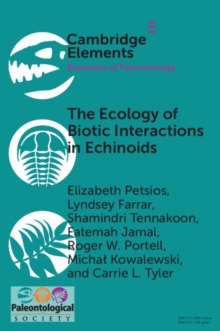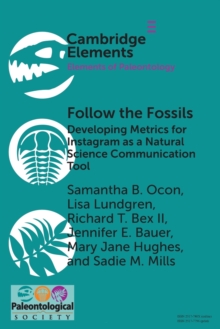
Disarticulation and Preservation of Fossil Echinoderms: Recognition of Ecological-Time Information in the Echinoderm Fossil Record Paperback / softback
by William I. (Ohio State University) Ausich
Part of the Elements of Paleontology series
Paperback / softback
- Information
Description
The history of life on earth is largely reconstructed from time-averaged accumulations of fossils.
A glimpse at ecologic-time attributes and processes is relatively rare.
However, the time-sensitive and predictability of echinoderm disarticulation makes them model organisms to determine post-mortem transportation and allows recognition of ecological-time data within paleocommunity accumulations.
Unlike many other fossil groups, this has allowed research on many aspects of echinoderms and their paleocommunities, such as the distribution of soft tissues, assessment of the amount of fossil transportation prior to burial, determination of intraspecific variation, paleocommunity composition, estimation of relative abundance of taxa in paleocommunities, determination of attributes of niche differentiation, etc.
Crinoids and echinoids have received the most amount of taphonomic research, and the patterns present in these two groups can be used to develop a more thorough understanding of all echinoderm clades.
Information
-
Out of StockMore expected soonContact us for further information
- Format:Paperback / softback
- Pages:75 pages, Worked examples or Exercises
- Publisher:Cambridge University Press
- Publication Date:11/02/2021
- Category:
- ISBN:9781108789806
Information
-
Out of StockMore expected soonContact us for further information
- Format:Paperback / softback
- Pages:75 pages, Worked examples or Exercises
- Publisher:Cambridge University Press
- Publication Date:11/02/2021
- Category:
- ISBN:9781108789806



